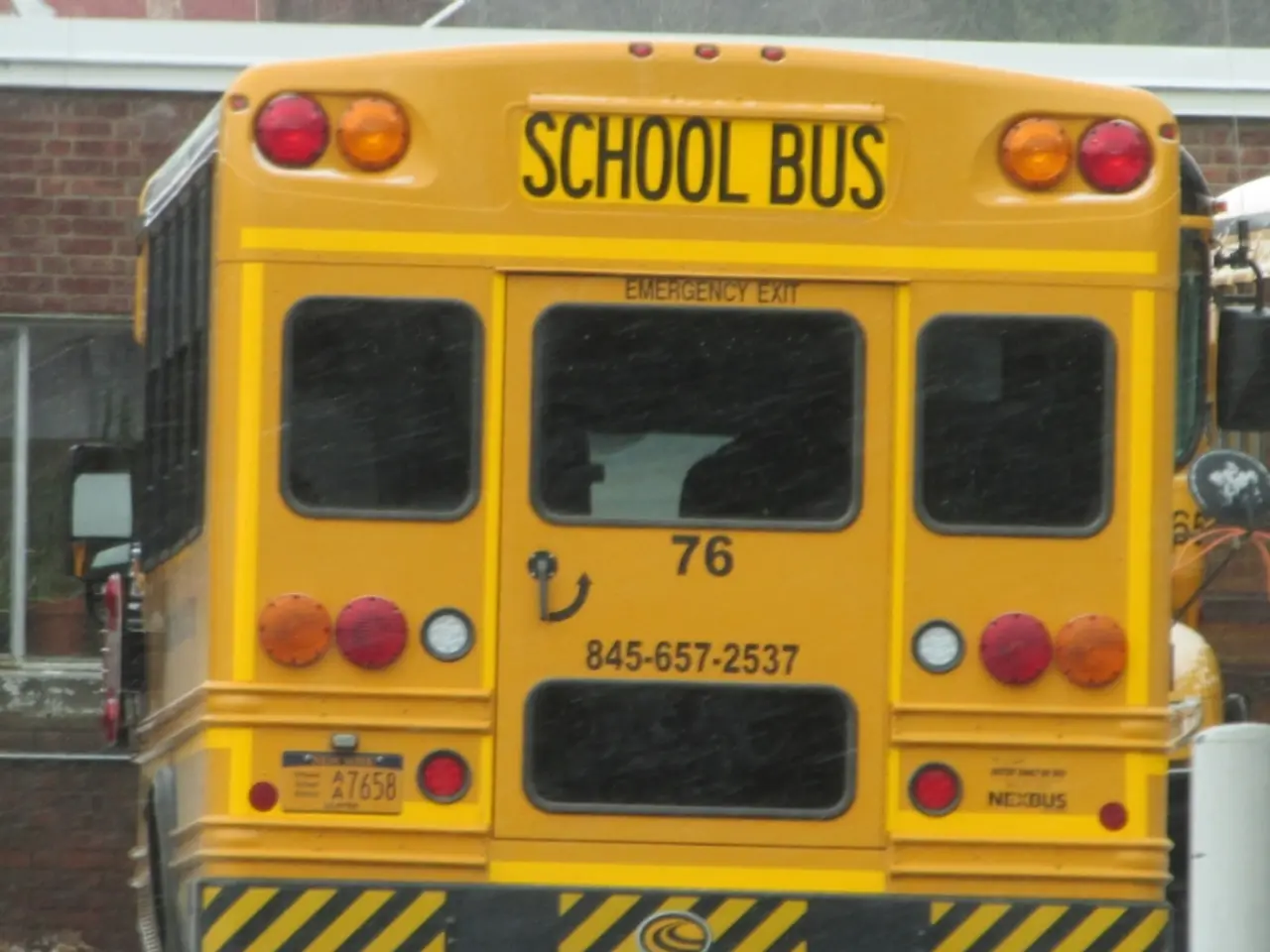Revised Federal government strategy aims to make climate-neutral heating supply more accessible and citizen-centric, targeting revisions in KW and AVB district heating systems.
In a recent development, the Alliance Free Heat, a prominent organisation advocating for consumer-friendly and climate-neutral heating solutions, has published a position paper on the reforms of the Municipal Heat Planning (KWP), Building Energy Act (GEG), and General Supply Conditions for District Heating (AVBFernwärmeV).
Markus Staudt, CEO of the Federal Association of the German Heating Industry e.V., underscores the importance of investing in heating modernization, urging that such investments should not be delayed or obstructed by municipal heat planning. This call comes as larger cities with over 100,000 inhabitants are required to submit their detailed heat plans by the end of June 2026, with smaller municipalities having until June 2028.
Andreas Müller, CEO of the Central Association of Sanitation, Heating, and Air Conditioning, raises concerns about district heating networks being regional monopolies, making competition and provider switching difficult. He criticizes municipal interventions with mandatory requirements, arguing they are neither consumer-friendly nor sensible in terms of climate policy and are counterproductive in terms of consumer responsibility.
The Alliance Free Heat welcomes the efforts of the Federal Ministry of Housing, Urban Development and Building and the Federal Ministry of Economics and Energy to simplify the KWP procedure, particularly for smaller municipalities.
In their position paper, the Alliance Free Heat proposes several strategies to optimise the KWP, GEG, and AVBFernwärmeV. These strategies aim to create a more efficient, consumer-friendly, and climate-friendly heating sector in Germany.
For instance, in the context of the Municipal Heat Planning (KWP), the Alliance suggests incorporating renewable energy sources, implementing energy efficiency measures, and engaging consumers in municipal planning processes.
In the realm of the Building Energy Act (GEG), the organisation emphasises the need to strengthen energy efficiency standards, incentivise green technologies, and ensure that consumers are well-informed about energy-efficient options.
Regarding the General Supply Conditions for District Heating (AVBFernwärmeV), the Alliance calls for promoting market competition, implementing consumer protection measures, and facilitating the integration of renewable energy sources into district heating systems.
Additional initiatives proposed by the Alliance include conducting public awareness campaigns, encouraging investment in infrastructure, and streamlining regulatory frameworks to reduce bureaucratic hurdles for innovative heating projects.
The KWP aims to develop solutions for a climate-neutral and affordable central heat supply by 2045. However, concerns have been raised about the high costs and additional charges of the monopolistically operated district heating, with limited rights for consumers against district heating providers and long contract commitments.
The Alliance Free Heat also criticises the outdated and consumer-unfriendly AVBFernwärmeV regulations, calling for political action to address these issues. Andreas Müller, in particular, demands that district heating contracts should be fair, cancellable, and adaptable to real usage, similar to electricity and gas contracts.
For more information, visit the press text/photos on the Alliance Free Heat website: https://www.freie-waerme.de/news/pressetexte/
Press contact: Jürgen Bähr, Press Office Allianz Free Heat, +49 2247 9001 811, [email protected]
The position paper is available for free download on the website www.freie-waerme.de.
The Alliance Free Heat, in their position paper, has proposed strategies to optimize the Municipal Heat Planning (KWP), Building Energy Act (GEG), and General Supply Conditions for District Heating (AVBFernwärmeV). This includes incorporating renewable energy sources, implementing energy efficiency measures, and engaging consumers in municipal planning processes for KWP. For GEG, they emphasize strengthening energy efficiency standards, incentivizing green technologies, and ensuring consumer awareness. In AVBFernwärmeV, they call for promoting market competition, implementing consumer protection measures, and facilitating the integration of renewable energy sources into district heating systems.
In addition, the Alliance suggests conducting public awareness campaigns, encouraging investment in infrastructure, and streamlining regulatory frameworks to reduce bureaucratic hurdles for innovative heating projects. They also criticize the outdated and consumer-unfriendly AVBFernwärmeV regulations, calling for political action to address these issues. The Alliance is advocating for a more efficient, consumer-friendly, and climate-friendly heating sector in Germany, aligning with their mission of promoting climate-neutral heating solutions. This initiative is significant amidst concerns about the high costs and limited rights of consumers in district heating, as outlined in the KWP's goal of achieving climate-neutral and affordable central heat supply by 2045.




